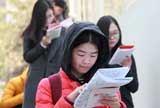Regional tensions hinder Northeast Asia investment
By Li Jiabao (China Daily) Updated: 2012-11-21 02:40Deteriorating Sino-Japanese ties over the Diaoyu Islands and the festering tension between Japan and South Korea over a pair of islets in the Sea of Japan has adversely affected investment in Northeast Asia, a senior trade official said.
Meanwhile, a two-way trade pact between China and South Korea is likely to see prolonged progress, the official said, while a trilateral free trade negotiation among the region's three major economies was announced on Tuesday in the 7th East Asia Summit in Cambodia.
Hwang Jae-won, deputy head of the China branch of the Korea Trade-Investment Promotion Agency, or KOTRA, made the remarks in an exclusive interview with China Daily.
"We hope the conflicts in political and foreign affairs as well as in history in Northeast Asia will not affect the economic development among China, Japan and South Korea because the three economies share high industrial compatibilities," he said.
"Clashes among the three countries will lead to no winner, and all will suffer great losses."
Although the current dispute between China and Japan "was triggered by Japan" and hit the Japanese economy hard, the Chinese economy also suffered because Japanese investment has played a very important role in China's economic success in the past three decades, he said.
The recent months saw massive protest against Japanese brands in China after Japan illegally "purchased" the Diaoyu Islands. Meanwhile, Japan planned to lodge a territorial dispute over the South Korea-controlled islets, called Dokdo in Korean and Takeshima in Japanese, to the International Court of Justice.
Bloomberg cited a confidential report to US Secretary of State Hillary Rodham Clinton as saying that the dispute could spin out of control because of poor communication and serious misunderstandings.
"If the China-Japan dispute keeps festering, it will also affect South Korea, whose enterprises are relatively nervous now and are watching the dispute's development very closely," Hwang said.
Chinese imports from Japan in the first 10 months, including key parts, dropped by 6.8 percent from a year earlier, while exports to Japan rose by 4.1 percent year-on-year. Bilateral trade from January to October fell by 2.1 percent year-on-year, according to China's General Administration of Customs.
Figures from the Japanese Finance Ministry showed that Japan's trade deficit widened to 558.6 billion yen ($7.2 billion) from $9.6 billion in August as exports in September plunged 10.3 per cent from a year earlier, driven down by Europe's debt crisis and a row with China, the country's biggest export destination.
Meanwhile, South Korean exports to China, mainly raw materials and key parts, in the first nine months of this year dropped by 2 percent from a year earlier, and the whole year will see the volume "maintain that in 2011", said Hwang.
"South Korean exports to China are closely related to the country's investment in China because about 70 percent of South Korean companies in China are in the processing trade business," he added.
The first half of this year saw South Korean investment in China drop by 20 percent from a year earlier to $1.47 billion, according to data from KOTRA.
Despite the attractiveness of China's expanding market, Yao Haitian, a researcher at the Institute of Japanese Studies at the Chinese Academy of Social Sciences, warned that some Japanese enterprises in China will consider relocating their production because of "safety concerns" over the anti-Japan protests.
However, Zhang Yunling, director of the division of international studies at the Chinese Academy of Social Sciences, said: "Japan increased its investment in Southeast Asian markets in recent months, and the trend will continue."
Contact the writer at lijiabao@chinadaily.com.cn
- Thousands flee their homes amid fatal downpours
- Chinese supercomputer tops list of world's fastest
- Booze banned at official banquets
- Students paying $15,000 to consultants to select college
- US urged not to meddle with internal Tibet affairs
- China puts squeeze on imported TV shows and remakes
- Apple's appeal in iPhone case accepted by IP court
- China on yellow alert for rainstorms
- Disney visitors soak up a new experience
- China vows better care for children in difficulty










